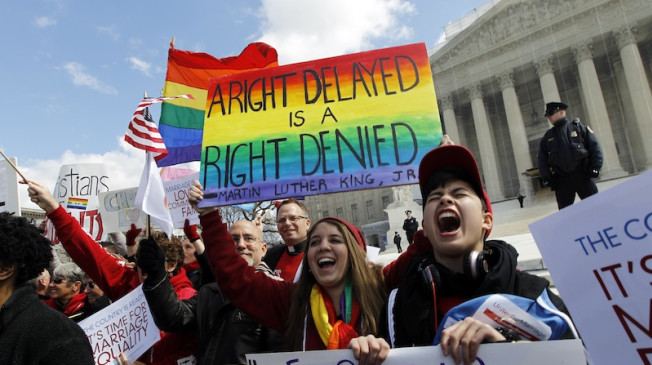In the past few years an unprecedented amount of video evidence regarding police brutality towards POC has surfaced. With each jarring reality check a new movement has been gaining steam— and fast: the Black Lives Matter movement, a demanding of the end to police brutality, the for-profit prison system and many other forms of oppression dispersed onto black people in this country. Just as with any other movement in history, there were protests, and those protests in some instances have grown to riots.
Protests are typically well received by those even moderately socially conscious, but riots are a different story. Riots scare people, and rightfully so. It reminds the public of the true fragility of society; it borders on a concept of lawlessness that’s typically reserved for the movies. Riots expose this country to the world, and even worse— itself.
So what is it about the riots that cause debates? Some say they detract from the movement, others cite the fact riots tend to occur in black neighborhoods and it’s counterproductive, but what it really comes down to is one thing: violence. Riots are violent, it’s quite literally in the definition. The rioters typically aim for property damage, stealing and fires in most instances— while the police shoot rubber bullets, tear gas, beat, and even possibly kill as of recently. Let’s not forget which side the real violence comes from. But they’ll argue that it’s justified because of the rioters.
It all comes down to that one question: do you, a conscious black person in America, condone violence? It’s an insulting question. A question that can only be answered with a little education.
The last official lynching recorded was in 1968, the same year Martin Luther King was assassinated. You only have to be 48 years old to have been alive for it, just to give scope as to how truly recent that is. However, some argue the true last lynching took place in 1998 when three white men chained James Byrd to the back of their pick up truck and dragged him through Jasper, Texas. However I’d argue the lynchings have never stopped. What’s even worse is that they’ve been televised. The point is, my history in this country has been violent from the first slave to be kidnapped to this moment as I’m writing this— and quite frankly, myself and many others are tired. But honestly, I cannot expect for my white peers to fully understand.
Triggering would be a mild word to describe the videos the world has been exposed to over these past few years. I try my absolute hardest not to watch them anymore because it started to take a toll on my mental health. But it’s not just videos of police shootings that trigger. Media dating back to slavery, the Jim Crow era, etc. effect myself and many other black people the same way. My senior year of high school in a history through film class we watched the film Amistad, and the imagery was hard to swallow.
My heart was racing. I was nervous, I felt sick. I started to look around the room and realized no one but me truly felt the weight of this movie. Some people were texting or talking and I was sitting there filled with anxiety as if I’ve witnessed the torture on the screen before— you’d think it was PTSD. This isn’t unfounded either. Epigenetic Inheritance is the idea that factors from your environment (including trauma) can affect the genes of your children.
A research team at New York’s Mount Sinai Hospital conducted a study with 36 jewish men and women who had experienced the holocaust including concentration camps in some form. It was found that the genes of their offspring had been altered, and this alteration been linked to stress disorders as well. So, imagine how African American DNA has been affected from 500+ years of a very violent oppression? What’s worrying is how the trauma of constantly being exposed to viral lynchings of those who look like your brother, cousin, aunt, dad, YOURSELF has further altered our genetics.
Oppression is violence, every factor of it. That violence has left our DNA stained, it holds the trauma of being kidnapped, lynched, hosed down etc. What I’m getting at is—our entire traceable ancestry in America has been shaped by violence. So when you ask me if I support or “condone” violence it’s telling of your disconnection to the true nature of what is at hand. Angela Davis touched on this in a 1971 interview. There is no way to want violence and be conscious of my history—we’ve seen enough. However, in regards to violence in riots inspired by my oppression, my disdain for violence is irrelevant.
These riots are not about whether or not I condone violence, it’s about whether or not I condone my oppression (hint: I don’t). I do not personally believe politics as usual will make the change that’s so desperately needed. Considering this country’s foundation is based off of the genocide of a native people and the enslavement of another, simply trimming the branches isn’t going to work—the roots are rotten.
Riots have been a part of nearly every major movement of marginalized people in history, it’s a part of the process of liberation and in retrospect those rioting are often looked at with admiration. I do not have any want for riots or violence—but, if I was told it would take some serious riots to cause an end to over five centuries of emotional, physical, economic and genetic warfare against my people…is there honestly an option? Many people think this is a “radical” point of view, but hopefully you can come to understand that it is simply logical.


